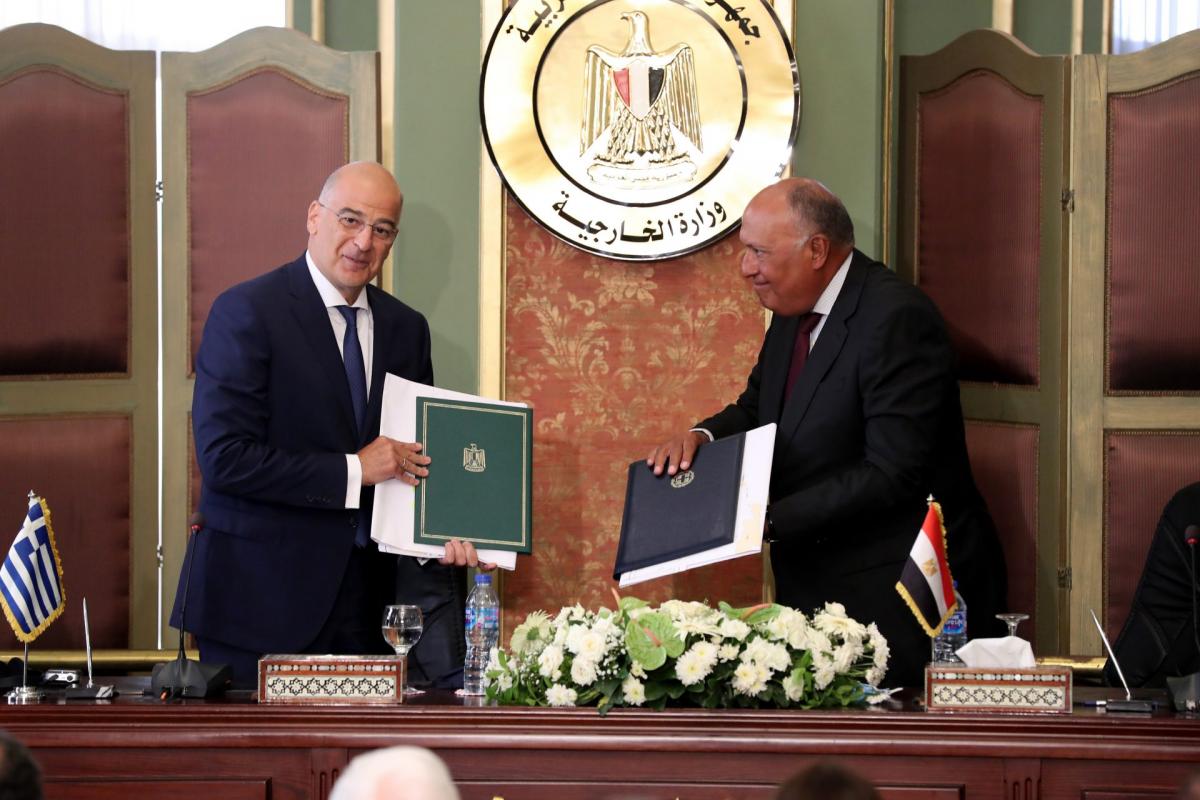Greece and Turkey have been at odds for decades over sea boundaries but recent discoveries of natural gas reserves in the waters of Cyprus and drilling plans across the east Mediterranean have exacerbated the long-running and unresolved dispute over the rights to gas. The neighbours lay claim to overlapping areas, arguing they belong to their respective continental shelves.
Greece’s prime minister convened the government’s national security council on Monday, after Turkey announced its research vessel Oruc Reis and two auxiliary vessels would be conducting seismic exploration from Monday until 23 August in the eastern Mediterranean in an area between Cyprus and Greece. Last week, Turkey also announced it would be conducting a firing exercise in the eastern Mediterranean. When Turkey initially announced in July it was planning to send its survey ship to waters off the Greek island of Kastellorizo, the row was brought to an end by Germany. As a result, Turkey said it was suspending its exploratory operations in the eastern Mediterranean, and the move was seen as somewhat defusing the situation.
But then in early August, Greece signed a deal with Egypt delineating maritime boundaries and the countries’ exclusive economic zones for drilling rights. The agreement, which lays out the boundary between the two nations’ exclusive economic zones, will allow Athens and Cairo to secure maximum benefits from oil and natural gas in the area, Egyptian Foreign Minister Sameh Shoukry said in a televised press conference with his Greek counterpart, Nikolaos Dendias.
This infuriated Turkey which called the deal a "pirate agreement". “A maritime boundary between Greece and Egypt does not exist. With respect to Turkey, the so-called maritime delimitation agreement … is null and void. This understanding will reflect on the ground and at the table,” read a Foreign Ministry statement. Turkey, it vowed, “will not allow any activity at the area in question and will resolutely continue to defend its legitimate rights and interests as well as those of the Turkish Cypriots in the eastern Mediterranean.”
Turkish officials accuse the Greek government of not honouring its promise to discuss the issue on a bilateral level, even though, in a goodwill gesture, Ankara suspended its drilling work west of Cyprus for a month in order to allow time for diplomatic negotiations.

Ankara used the move by Greece as an opportunity to call off talks and restart seismic surveys in the region. Now that Oruc Reis has left the port, the dispute has come to a head again and the two NATO allies are engaged in a war of words.
Greece spelled out its position in a strongly worded Government statement issued earlier this week. The Foreign Minister Nikos Dendias urged Turkey on Tuesday to "immediately leave the Greek continental shelf", saying the country was determined to defend its sovereign rights. Meanwhile, a spokesman said: "Turkey’s new illegal Navtex for illegal surveys south of the island of Megisti on the Greek continental shelf, in combination with the broad mobility by Turkish naval units that has been observed, constitutes a new serious escalation and clearly exposes Turkey’s role which is destabilising and threatening to peace.”
"This comes at a time when Greece has proved in practice its commitment to international legality." Basing its actions exclusively on International Law, the International Law of the Sea and rules governing good neighbourly relations, Greece had reached agreements, after negotiations with neighbouring countries, on the delimitation of its Exclusive Economic Zone, the spokesman said. "Greece will not be blackmailed. It will defend its sovereignty and its sovereign rights,” he added.
A statement subsequently issued by the Turkish Government said: "Our military presence in the region is not aimed at increasing tensions. "It is about resorting to legitimate defence if necessary. We will not allow in any way a military intervention against our civilian ship."
The Greece-Egypt deal is a response to a similar agreement between Turkey and Libya’s Tripoli-based government last year that has spiked tensions in the East Mediterranean region. The move has been criticised sharply by Greece, Cyprus and Egypt who see it as illegal infringement on their economic rights in the oil-rich sea, as well as the European Union which says it’s a violation of intentional law that threatens stability in the region.
Egypt, Bahrain, Saudi Arabia, Greece and Cyprus last month jointly sent a letter to the secretary-general of the United Nations asking that the U.N. not register the Turkey-Libya maritime border deal in its list of international treaties. The five countries said last year's deal gravely jeopardizes regional stability and security.
Meanwhile, Egypt’s Foreign Minister Sameh Shukry said after the brief signing ceremony in Cairo that “Egyptian-Greek relations have been crucial to maintaining security and stability in the East Mediterranean region and for countering threats caused by irresponsible policies that support extremism and terror,” a reference to Ankara’s support for the Tripoli government.
In Libya’s proxy war, Egypt has been on the opposite side from Turkey and has backed the rival administration based in eastern Libya and the east-based military commander Khalifa Hafter. Egypt claims Turkey is backing extremists that pose a national security risk for Cairo.
on behalf of the U.N.-supported government in Tripoli. Turkish support for the internationally recognised, Tripoli-based Libyan Government of National Accord has upped the stakes in the war-ravaged North African nation.
With Turkish military support, the Tripoli government has repelled Hafter’s 14-month-long military campaign to capture the Libyan capital. After Turkey turned the tide in the Libyan war, Egypt’s President Abdel Fattah el-Sisi threatened a military incursion into Libya, leading to concerns of a direct Egyptian-Turkish confrontation.









